detail profile j c3 a1nos g c3 b6rbe
Peran Yang Di Mainkan János Görbe
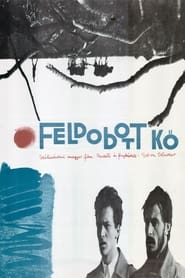 An aspiring film student is denied...
An aspiring film student is denied...The Upthrown Stone 1969
An aspiring film student is denied a scholarship to the state-funded university when his father is thrown in jail. The man had stopped a train in order to facilitate the union between two old friends. The son then takes a job as a land surveyor and meets a Greek man who works towards the collective benefits of the peasants. The man is killed in a peasant uprising prompted by a bureaucratic boondoggle. The surveyor looks after the man's widow as his emerging political and social awareness leads him take a stand against government injustice. Another incident, in which gypsies are rounded up by state hygiene workers, further galvanizes the man's beliefs. He photographs the incident, and his work allows him to be accepted into the school from which he was previously denied admission.
 Set during a turbulent era of...
Set during a turbulent era of...Silence and Cry 1968
Set during a turbulent era of disquiet, fear, persecution and terror, which permeates every corner of post-WWI Hungarian society. In 1919, after just a few months of communist rule the Hungarian Republic of Councils falls victim to a nationalist counter-revolution. Admiral Horthy, leader of the nationalist far right movement, becomes the self-proclaimed regent of Hungary, and assumes power as the legal Head of State. Soldiers of the short-lived Hungarian Red Army are now on the run from relentless secret policemen and patrol units of the nationalist Royal Gendarme. If caught, ex-Red Army soldiers are executed without mercy or proper trial. István Cserzi, a former soldier of the Red Army has fled to the Great Hungarian Plains and has taken refuge on a farm, which is run by two sympathetic women.
 The changing and turbulent history of...
The changing and turbulent history of...Ten Thousand Days 1967
The changing and turbulent history of Hungary is seen through the eyes of three men over a 30-year period in this somber drama. The three recall the highlights of their lives in flashbacks as they reminisce in the mid 1960s. The venerable trio begin their story in the 1930s, through World War II, and the decade beyond the communist invasion of 1956.
 After the failure of the Kossuths...
After the failure of the Kossuths...The Round-Up 1966
After the failure of the Kossuth's revolution of 1848, people suspected of supporting the revolution are sent to prison camps. Years later, partisans led by outlaw Sándor Rózsa still run rampant. Although the authorities do not know the identities of the partisans, they round up suspects and try to root them out by any means necessary.
 The young heartbreaker Thomas Laurends son...
The young heartbreaker Thomas Laurends son...Ferien mit Piroschka 1965
The young heartbreaker Thomas Laurends, son of a wealthy Hamburg family, is sent to Hungary to buy horses for his father's stud farm. This comes in very handy for Thomas. It allows him to escape his clingy girlfriend Karin for a while. However, his stay is complicated when Karin follows him to the Puszta, but Thomas has fallen in love with the passionate Tery in the meantime.
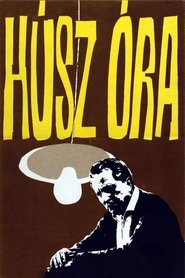 A crusading newspaper reporter covers the...
A crusading newspaper reporter covers the...Twenty Hours 1965
A crusading newspaper reporter covers the Soviet invasion of Hungary in 1956. Initially critical of the communists, the feature later espouses the virtues of the social changes implemented since the invasion. The title refers to the period of time the reporter spent interviewing witnesses to the invasion.
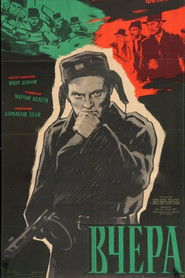 October 1956 Colonel lieutenant Szab sends a...
October 1956 Colonel lieutenant Szab sends a...Yesterday 1959
October, 1956. Colonel lieutenant Szabó sends a platoon with the mission of calming the people demonstrating in the town. The platoon is lined up under the command of Lieutenant Csendes and the soldiers aim at the demonstrators. Szusza Kis changes sides, and Csendes is unable to shoot at his childhood mate. They withdraw.
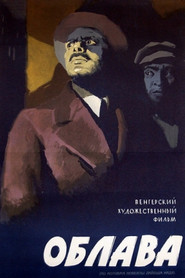 1932 Budapest Gere Jnos an unemployed worker...
1932 Budapest Gere Jnos an unemployed worker...Raid 1958
1932, Budapest. Gere János, an unemployed worker searching for employment in the capital, is organised into the secret police after a raid. Summary justice is declared, and the police wants to find an illegal communist press at any price. Gere, wandering about in the dark city, joins a man, helping him to carry his luggage. Slowly, Gere learns that his companion is a Communist and his task is to keep the press machine hidden from the police.
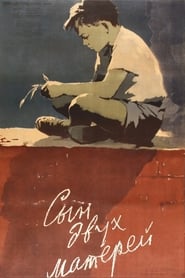 Dani the fewmonthold little boy born...
Dani the fewmonthold little boy born...Dani 1957
Dani, the few-month-old little boy born outside marriage is left by Eszter in the lap of her companion on the train. The widowed Aranka takes him willingly to her. The child is already ten years old and has a good life with Aranka. Then Géza enters their life and he does not welcome the child of someone else.
 March 15 1848 the revolution breaks out in...
March 15 1848 the revolution breaks out in...The Sea has Risen 1953
March 15, 1848; the revolution breaks out in the town of Pest. Yet at café Pilvax, in among he revolutionary youth, there is the informer of the imperial court as well. Hearing the news of the attack led by Jellasics, the inhabitants of the villages pour into the national army, and Hajdú Gyurka also escapes from his landlord. Petőfi is there at the camp of the revolutionaries, raising them to enthusiasm with his poetry.
 In 1905 Hungary a young village woman...
In 1905 Hungary a young village woman...The Soil Under Your Feet 1948
In 1905 Hungary, a young village woman has just undergone a marriage to the spoiled son of a man to whom her father is indebted, in order that the debt be cancelled, only to be spirited away by her true love, a young peasant, by whom she soon becomes pregnant. Together they attempt to find a way to buy up her father's debt and also pay for a divorce from her husband, against various odds.


 Story of a young teacher starting...
Story of a young teacher starting... In the aftermath of World War...
In the aftermath of World War... To celebrate Hitlers birthday a soccer...
To celebrate Hitlers birthday a soccer...
 September 1952 in a mine in NorthernHungary...
September 1952 in a mine in NorthernHungary... A young peasant boy stands up...
A young peasant boy stands up... A Hungarian soldier returning from fighting...
A Hungarian soldier returning from fighting...